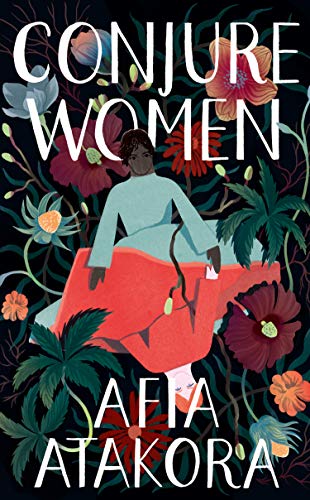Conjure Women
Afia Atakora’s haunting, lyrical prose draws you in from the first sentence like one of the spells conjured by the plantation midwives: “The black baby’s crying wormed and bloomed.” So the storytelling does, as well—and isn’t it a form of conjure?
Rue is a midwife, healer, and conjurer of ancient magic in Freedomtime, 1867, two years after the Civil War and slavery have ended. She learned her trade from her mother, Miss May Belle, who served the other slaves on their Southern plantation during Slaverytime.
The novel alternates between these eras, contrasting life during enslavement and afterward, when the newly freed stay put out of fear of the unknown, or because they have nowhere to go. Are they truly free? Holding them in thrall is the itinerant preacher, “Bruh Abel,” who gives them a new religion to believe in but who is only a man, himself, with a man’s appetites.
The baby is Black-Eyed Bean, born in a caul and murmured against when the plantation children begin dying of a plague. Rue, they begin to say, is a witch. And so the people she and her mother have served turn against her and toward the new religion, Christianity, which binds them to white culture in different ways.
Meanwhile, the plantation owner’s daughter, Varina, Rue’s childhood playmate, hides in the chapel from Northern soldiers, unaware that the war has ended. When Rue finally tells her the truth, she walks away—free in a way that Rue can never be.
Conjure Women is a lovely, mystical book—at times, too mystical. Why characters do what they do doesn’t always make sense, or seems contrived. These aren’t “plot holes,” but “motivation holes.” Still, it’s a fabulous debut from a promising author, and well worth the read.










